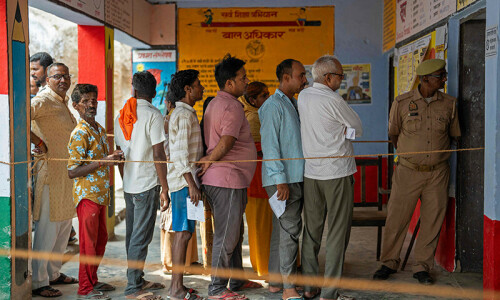ISLAMABAD: In an attempt to improve communication and remove misunderstandings among federating units on the China-Pakistan Economic Corridor (CPEC), Prime Minister Nawaz Sharif has constituted a high-powered committee under his own supervision.
The 10-member special committee which includes all chief ministers will meet every three months to take up issues concerning the CPEC. The meeting of the committee can be convened even earlier if needed.
In the wake of serious concerns expressed by political parties in Khyber Pakhtunkhwa and Balochistan over the corridor route and economic zones to be developed along it, Mr Sharif held a consultative meeting with them at the Prime Minister Office on Friday to address their apprehensions.
On the demand of the provincial governments, the prime minister also agreed to set up a special cell at the Ministry of Planning and Development for effective coordination and information sharing.
The purpose of the cell, according to a participant of the meeting, will be to have regular interactions among technical experts of the provincial governments. For example, one official said, if a provincial government wanted a change in the proposed economic zones, it could present its suggestions through the cell.
Another participant told Dawn that the prime minister had agreed to head the special committee because three smaller provinces insisted at his personal involvement in the implementation of the CPEC.
10-member committee set up to end misunderstandings among federating units
“This is a very critical project to be left to one or two ministers; therefore, Mr Prime Minister regardless of your pre-occupation with other equally important issues concerning national security, your presence in the committee will go a long way in the smooth implementation of the corridor,” a participant was quoted as saying at the meeting.
On a positive note, the meeting resolved that the CPEC would not be made controversial like Kalabagh dam and all sides would play an active role for its success because of its critical importance for the country.
The participants reached four broad-based decisions/agreements.
Firstly, they agreed that the location of industrial parks would be decided in consultation with the provinces. Developing allied facilities and infrastructure required for the industrial parks, the meeting decided, would be a collective responsibility of both the federal and provincial governments, according to their roles.
Secondly, the federal government agreed to the demand of the KP and Balochistan governments that western alignment of the CPEC would be constructed on a priority basis.
An official statement released by the PM Office said: “Working on the principle of ‘one corridor, multiple passages’, the western alignment for the CPEC will be constructed on priority with a timeline of two years and six months i.e. July 15, 2018.” If required, the federal government agreed, the existing allocation of Rs40 billion in the current financial year for this alignment will be increased appropriately.
Thirdly, the participants agreed that the western alignment would initially be a four-lane expressway, but with a provision for subsequent conversion into six lanes.
The early acquisition of land will be a responsibility of the KP government. However, the fund for the purpose will be provided by the federal government.
And finally, the prime minister agreed to head the special committee for periodical consultations. It comprises the chairman of parliamentary committee on CPEC, federal ministers for planning and development, water and power, railways and communications and chief ministers of Punjab, Sindh, Balochistan, Khyber Pakhtunkhwa and Gilgit-Baltistan.
The meeting was attended by JUI-I chief Maulana Fazlur Rehman, PkMAP leader Mehmood Khan Achakzai, KP Chief Minister Pervez Khattak, QWP chief Aftab Ahmed Sherpao, Mushahid Hussain Syed of the PML-Q, Mir Hasil Bizenjo of National Party, PTI leader Shah Mehmood Qureshi, BNP-M chief Akhter Mengal, Afrasiab Khattak and Mian Iftikhar Hussain of ANP, Jamaat-i-Islami Emir Sirajul Haq, KP Governor Mehtab Ahmed Khan, Leader of the House in Senate Raja Zafarul Haq, Information Minister Pervaiz Rashid, Planning and Development Minister Ahsan Iqbal, Railways Minister Khawaja Sadd Rafiq, PM’s Special Assistant Tariq Fatimi, Senator Iqbal Zafar Jhagra, PM’s Secretary Fawad Hassan Fawad and NHA Chairman Shahid Ashraf Tarar.
Published in Dawn, January 16th, 2016












































